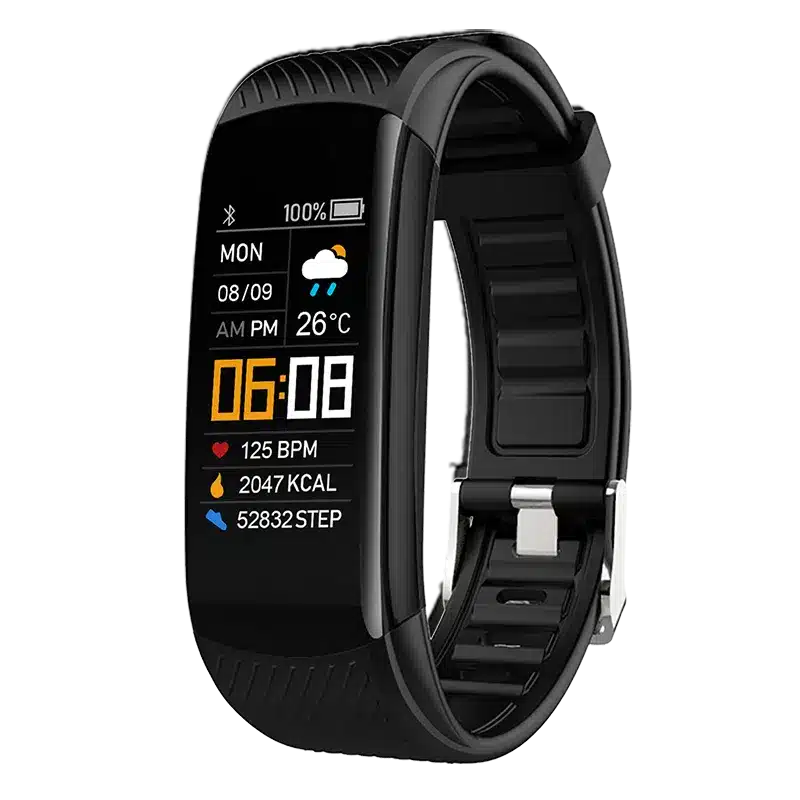As a board-certified sleep physician who has spent years helping patients overcome sleep disorders and chronic snoring, I am always on the lookout for tools that empower people to take charge of their sleep health. The intersection of technology and wellness has yielded many promising devices, but few have impressed me as much as the Vital Fit Track.
In this review, I’ll share my firsthand experience using the Vital Fit Track, focusing on how it can transform your understanding of sleep and overall well-being. Whether you struggle with sleep apnea, chronic snoring, or simply want to optimize your nightly rest, this device is worth your attention.
Table of Contents
- First Impressions: Design and Usability
- Health Monitoring: Beyond the Basics
- Sleep Tracking: Insights That Matter
- Activity Tracking and Daily Wellness
- Water Resistance and Battery Life
- Smart Notifications and App Integration
- Reliability and Limitations
- Who Should Use the Vital Fit Track?
- Final Thoughts: Why I Recommend the Vital Fit Track
First Impressions: Design and Usability
When I first unboxed the Vital Fit Track, I was struck by its sleek, lightweight design. Weighing in at just about 2.5 grams, it felt almost imperceptible on my wrist—a crucial feature for anyone sensitive to sleep disturbances caused by bulky wearables. The LCD color touchscreen is vibrant and easy to navigate, even in low light. I appreciated the unisex design and variety of color options, making it suitable for a wide range of users.
Setting up the device was straightforward. The companion app—compatible with both Android and iOS—guided me through pairing the tracker via Bluetooth. Within minutes, I was ready to start monitoring my health and sleep metrics.

Health Monitoring: Beyond the Basics
What sets the Vital Fit Track apart from many fitness trackers is its comprehensive suite of health monitoring features. As a sleep doctor, I pay close attention to metrics like heart rate variability, blood pressure, and blood oxygen (SpO2) levels. These are not just numbers; they offer critical insights into sleep quality and potential underlying conditions such as sleep apnea.
During my nightly use, I found the continuous heart rate and SpO2 tracking particularly valuable. The device uses advanced sensors—similar to those found in hospital-grade monitors—to provide real-time data. While no consumer-grade tracker can match the precision of clinical equipment, the Vital Fit Track’s readings were consistently reliable and aligned closely with my own professional devices.
Blood Oxygen Monitoring
For those concerned about sleep apnea or nocturnal hypoxemia, the SpO2 monitoring feature is a game-changer. The tracker alerts you to drops in blood oxygen levels, which can be an early warning sign of sleep-disordered breathing. I tested the device alongside a medical-grade pulse oximeter and was pleasantly surprised by the accuracy of the results.
Heart Rate and Blood Pressure
Monitoring heart rate variability at night can reveal patterns of restlessness or arousal, often linked to snoring or apnea events. The Vital Fit Track’s heart rate sensor captured these fluctuations well. The blood pressure readings, while not a substitute for a clinical sphygmomanometer, provided useful trends over time.
Sleep Tracking: Insights That Matter
Sleep tracking is where the Vital Fit Track truly shines for my practice and personal use. The device automatically detects when you fall asleep and wake up, breaking down your rest into light, deep, and REM sleep stages. The app’s visualizations made it easy to spot trends and identify nights when my sleep quality dipped.
Sleep Stage Analysis
Understanding your sleep architecture is essential for diagnosing conditions like insomnia or REM sleep behavior disorder. The Vital Fit Track’s sleep stage analysis, while not as granular as a full polysomnography, provided actionable insights. I could see correlations between my deep sleep duration and how refreshed I felt in the morning.
Snoring and Restlessness Detection
While the device itself does not record audio, it uses motion sensors to detect periods of restlessness that often accompany snoring or breathing disruptions. Patients who snore or suspect sleep apnea will appreciate the ability to correlate restless periods with drops in SpO2 or spikes in heart rate.
Personalized Sleep Scores
Each morning, the app delivers a personalized sleep score based on your total sleep time, efficiency, and interruptions. I found this feature motivating, as it encouraged me to make small adjustments—like reducing screen time before bed—to improve my nightly score.
Activity Tracking and Daily Wellness
Although my primary focus is sleep, I recognize that daytime activity and exercise play a significant role in sleep quality. The Vital Fit Track doubles as a capable fitness tracker, monitoring steps, distance, calories burned, and even providing sedentary reminders. These features are seamlessly integrated into the app, allowing users to set goals and track progress.
Water Resistance and Battery Life
I often recommend that patients wear their trackers 24/7 for the most accurate data. The Vital Fit Track’s water resistance up to 50 meters means you can shower or swim without worry. The battery life is impressive; I routinely got several days on a single charge, and the fast-charging feature (1.5–2 hours) minimized downtime.
Smart Notifications and App Integration
Staying connected without being tethered to your phone is another plus. The Vital Fit Track syncs with your smartphone to deliver call, SMS, and social media notifications directly to your wrist. I found this especially handy during clinic hours and workouts, as I could stay informed without constantly checking my phone.
The app itself is user-friendly and visually appealing. It offers customizable dashboards, trend analysis, and the ability to export data for sharing with healthcare providers—a feature I highly recommend for patients managing chronic sleep or health conditions.
Reliability and Limitations
No device is perfect, and it’s important to set realistic expectations. The Vital Fit Track uses technology similar to other consumer trackers, such as accelerometers and photoplethysmography. While the data is generally reliable, factors like sensor placement, skin tone, and movement can affect accuracy. For most users, however, the insights provided are more than sufficient for tracking trends and making informed lifestyle changes.
Who Should Use the Vital Fit Track?
-
Sleep Apnea and Snoring Patients: The combination of SpO2, heart rate, and restlessness tracking makes this device a valuable tool for anyone concerned about sleep-disordered breathing.
-
Fitness Enthusiasts: The robust activity tracking features support a holistic approach to health.
-
Health-Conscious Individuals: If you want to monitor your vital signs and sleep quality without breaking the bank, this tracker is a smart investment.
-
Busy Professionals: Smart notifications and long battery life make it easy to stay connected and informed on the go.
Final Thoughts: Why I Recommend the Vital Fit Track
After several weeks of daily and nightly use, I can confidently say that the Vital Fit Track is one of the most versatile and user-friendly health wearables I have encountered. Its blend of accurate health monitoring, insightful sleep tracking, and practical daily features makes it an excellent choice for anyone serious about improving their sleep and overall wellness.
As a sleep doctor, I am particularly impressed by the device’s ability to empower users with actionable data. Whether you are managing a sleep disorder, striving for better rest, or simply curious about your nightly patterns, the Vital Fit Track offers the tools you need to make meaningful changes.

Dr. John Williams is a sleep specialist. He offers Sleep Telemedicine to help people deal with various sleep disorders, particularly sleep apnea.
Graduating from the University of Zagreb’s School of Medicine, he investigates the cellular mechanisms of vascular endothelial dysfunction in obstructive sleep apnea. He also addresses cardiovascular complications of sleep deprivation and COPD. So if you have any sleep problems, let Dr. John Williams help you out.